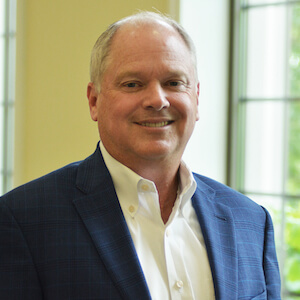Blog
When Your School's Fundraising Events Overshadow the Annual Fund
 William J. Acton, Senior Partner at Advancement Partners
William J. Acton, Senior Partner at Advancement Partners

If you have a school that relies heavily on a variety of annual fundraising activities that generate support, well, these will have a dampening impact on your annual fund results.
In my very unscientific observations of and listening to advancement professionals, I conclude the #1 thing they are most interested in learning more about…or improving in any kind of way…is their school's annual fund. They search for ways to grow alumni participation, establish the best faculty/staff giving approach, better incorporate technology into tried-and-true solicitation methodologies.
There is no magic to annual fund success, and no "gold standard" to model a program after. Every school is different, after all. History of giving, age of the school, its culture, traditions…these all play a factor in annual fund success. It's important to look at your school's annual fund as it is today, and see that as the starting point for building your annual fund's future. The question you need to ask is: how do we grow from here?
If you have a school that relies heavily on a variety of annual fundraising activities that generate support, well, these will have a dampening impact on your annual fund results. A school may have many fundraising programs or "buckets" people can put their gifts into, but those same people only have one wallet. And every dollar they drop into a (perceived) fundraising bucket is quite possibly one less dollar (or more likely, many less dollars) for your annual fund. It's been encouraging to see so many schools move away from these kinds of transactional fundraising activities and toward longer, more sustainable philanthropic approaches that clearly have more staying power in a rapidly changing world.
But let's be careful and honest here. It's easy to say things like, "get rid of all your fundraisers," but where do the replacement dollars come from? Eliminating all fundraisers and focusing just on the annual fund
I worked with an all-girls' Catholic high school not too long ago that relied heavily on an annual Pot 'O Gold raffle each year. As we all know, raffles like this are time-consuming, hugely inefficient (split-the-pot raffles cost 50 cents to raise a dollar), compete with the annual fund, and most importantly, do not nurture a culture of philanthropy. But raffles and other things of this sort (think, bingo) have been historically vital to the funding of churches, schools and missions. In most cases, they become embedded in the culture of the organization – a habit many cannot quit! This particular school's raffle, attached to a Saint Patrick’s Day theme and timeline, was wildly popular with many alumnae and deeply entrenched in school tradition. Alums eagerly and swiftly bought up the $100 tickets. Many would purchase a dozen or more. Ticket sales were capped, so of course the school knew exactly how much revenue the raffle would generate each year. It was the largest fundraiser at the school, and its results were 100% predictable. It would be stupid to simply eliminate it.
A comparative analysis of the raffle with annual fund support revealed the very unsurprising fact that most of the ticket-buying alums sat out the annual fund. And most of the few that did give to the annual fund gave a much, much smaller amount than they spent on raffle tickets. No surprise there, I guess. Gambling is perhaps more popular and accessible than it has ever been, and there are no doubt reams of psychological treatises out in the Googleverse that will tell us why. The motivation to buy a ticket is nowhere close to the motivation to give. So maybe those ticket buyers were not the best annual fund prospects. Building the annual fund solicitations around the non-ticket buyers was the better, more realistic way to go. Growing participation in that specific constituency – alums and friends who did not participate in the Pot 'O Gold – became a pivotal annual fund strategy.
In addition to the raffle, the school hosted a second large fundraising event in the fall celebrating the achievements of women. Hosted in a local convention hotel ballroom, the event was an after-work cocktail reception followed by speeches and award presentations to women in a variety of professional fields – science and medicine, business and law, etc. Like the Pot 'O Gold tickets, the awards event sold out. It was inspiring and garnered great media coverage each year as the award recipients (and attendance) were truly impressive. But like the Pot 'O Gold, the revenue results were "capped" and pre-determined – at $100 per ticket along with some sponsors. Of course, this event was also hugely time-consuming – with the required promotional activities, ticket selling, sponsor securing, etc.
So…with fall and spring pretty much chewed up, and with many of the same raffle ticket buyers also buying event tickets or sponsorship ads, the annual fund limped along. There was little time to execute the annual fund properly and almost no appetite by the community to support it.
So how do you grow the annual fund in this type of environment, with activities competing for time, attention and support?
Of the two fundraising events, the one celebrating and honoring the achievements of women was most closely aligned with the mission of the school and the one better positioned for long-term success. It certainly could be tied to the annual fund and leveraged into even greater, genuine support. It celebrates the core mission of the school – empowering young women – along with its rich traditions. It connected the school with the community beyond campus. Making the annual awards event the centerpiece event of the annual fund made the most sense, and ultimately provided the pathway to growing alumnae support. The annual fund became the way to ask school supporters to change our world by supporting the school and celebrating the importance of empowering women.
In our profession, we all recognize that philanthropy, not fundraising, is vital to sustaining our schools' futures. If we are going to meet escalating costs – demand for more tuition assistance, increased compensation to attract and retain the very best teachers and upgrading older facilities – we have to change the model of revenue creation. Just as tuition alone is not enough to fund our missions, soon transactional fundraising activities will not be enough.
So that school's decision to take a two-pronged approach to annual fund enhancement was a smart one: (a) build the annual fund around the celebration of empowered women and launch it in the fall and (b) use the spring to focus on non-raffle buying folks for the annual fun…and let the raffle run as it normally does, until some time in the future when it simply…doesn't.
Posted on: January 16, 2023
